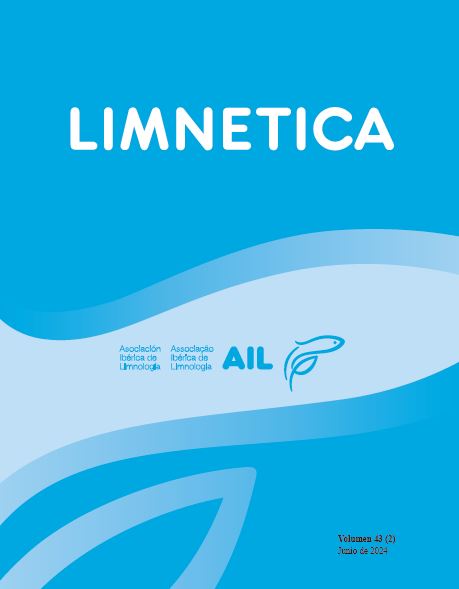Monitoring the ecological status of a stream using a citizen science-like approach with higher education students
Abstract
This study assessed longitudinal and temporal trends in the ecological status of a stream using a citizen science-like approach with higher education students under supervision. From 2004 to 2014, benthic macroinvertebrates were collected nine times in five sampling campaigns to calculate the scores of the biotic index IBMWP and of the multi-metric Portuguese index IPtIS. The two indices provided similar information but the scores were more constrained for IPtIS than for IBMWP. The ecological status was moderate along most of the longitudinal profile and time. Scores decreased downstream attaining a poor condition at the two lower reaches, and increased from 2004 to 2013. In 2014 there was a decrease due to disruption of the benthic macroinvertebrate communities by strong flash floods. In 2004, the exotic gastropod Potamopyrgus sp. was detected in relatively low abundances but the cumulative density in the stream increased steadily over time, conforming to an invasion curve. This citizen science-like approach provided useful information on the spatial and temporal trends in the ecological status of the stream and detected invasion by an alien species. Data collected by higher education students may fill data gaps and complement information gathered by national authorities.
##submission.downloads##
Pubblicato
Fascicolo
Sezione
Licenza
Los autores que publican en esta revista están de acuerdo con los siguientes términos:
- Limnetica está bajo una licencia de Creative Commons Atribución-NoComercial 4.0 Internacional.
b. Los autores pueden establecer por separado acuerdos adicionales para la distribución no exclusiva de la versión de la obra publicada en la revista (por ejemplo, situarlo en un repositorio institucional o publicarlo en un libro), con un reconocimiento de su publicación inicial en esta revista.
c. Se permite y se anima a los autores a difundir sus trabajos electrónicamente (por ejemplo, en repositorios institucionales o en su propio sitio web) antes y durante el proceso de envío, ya que puede dar lugar a intercambios productivos, así como a una citación más temprana y mayor de los trabajos publicados (Véase The Effect of Open Access) (en inglés).


